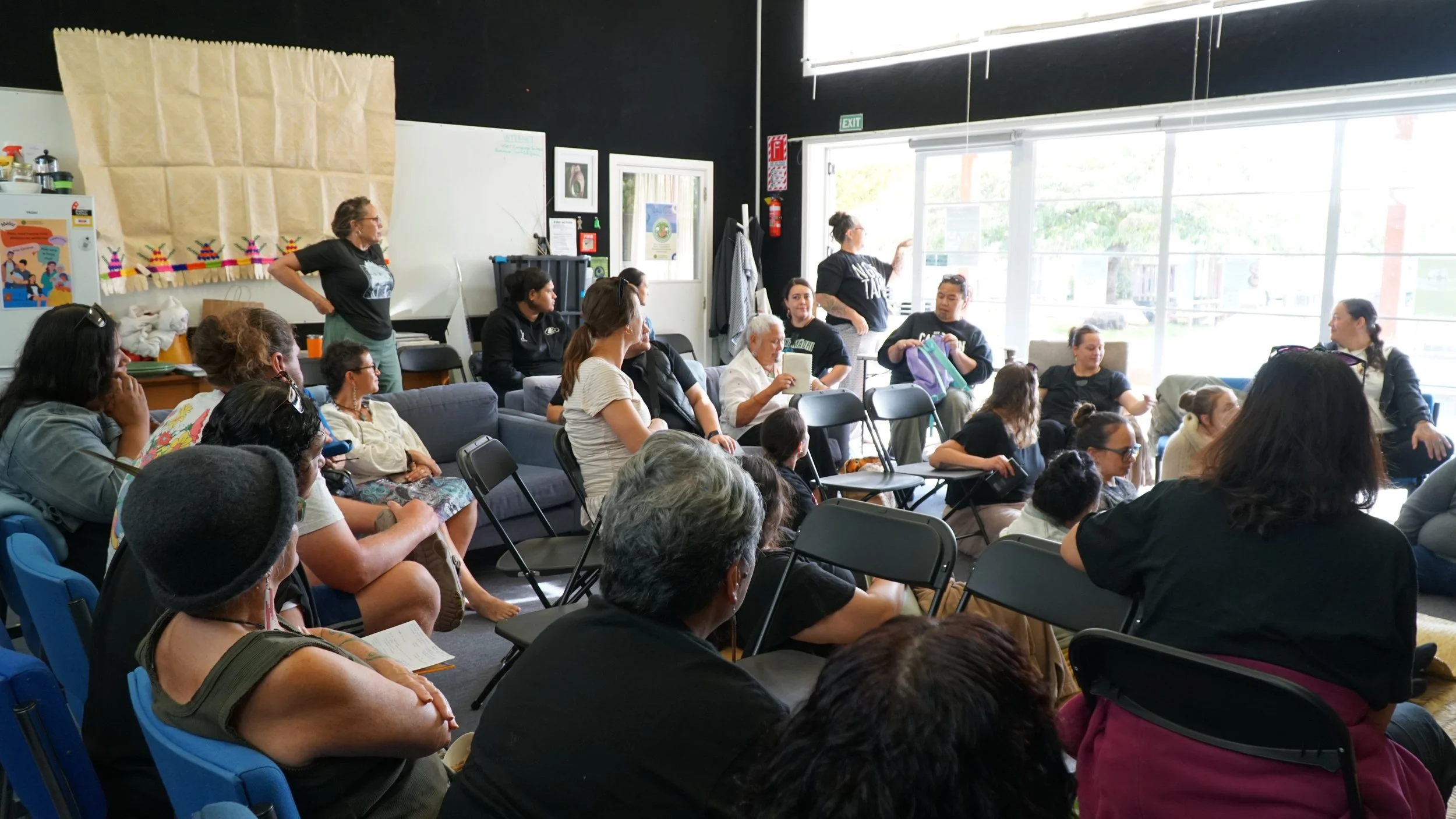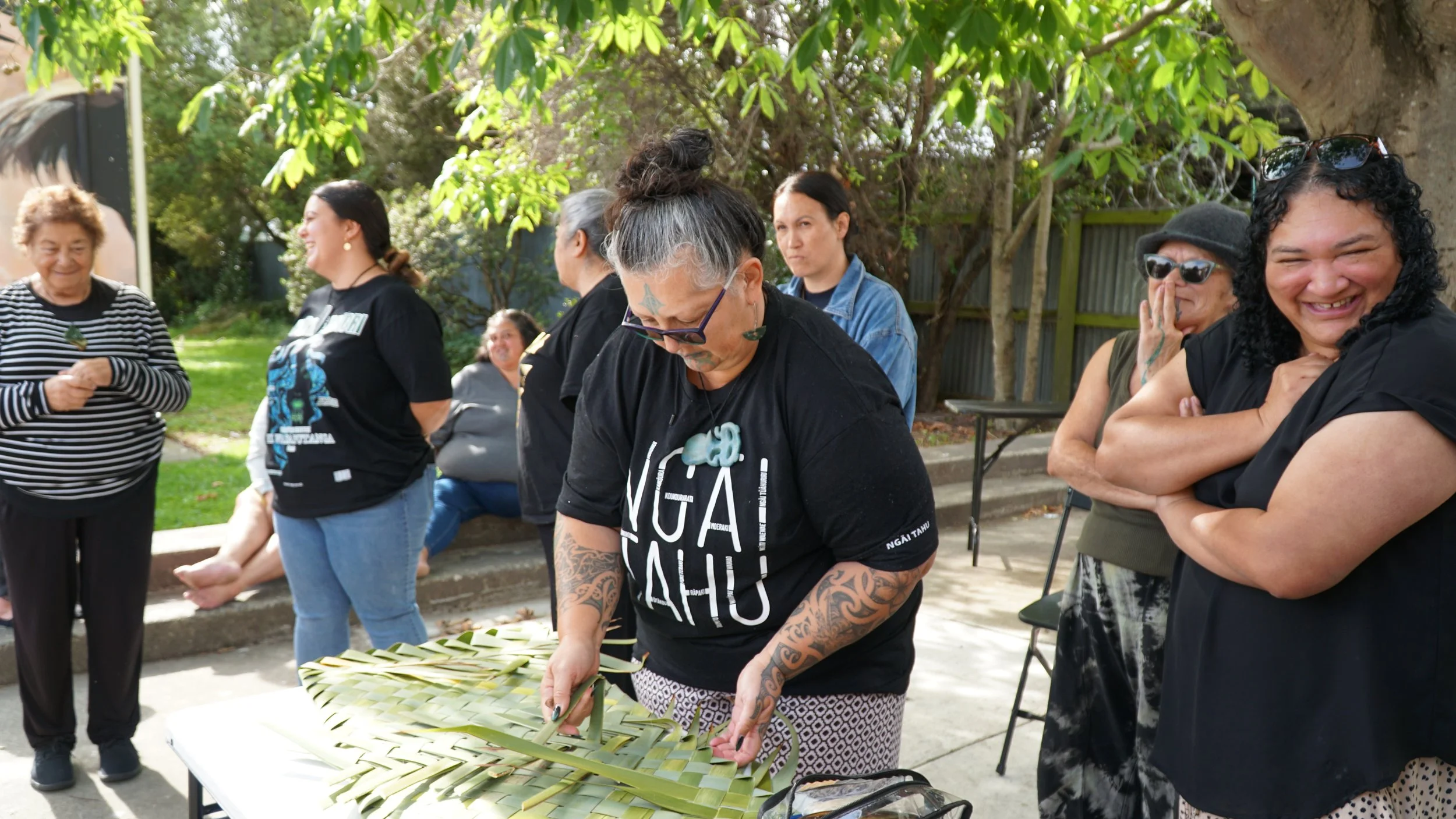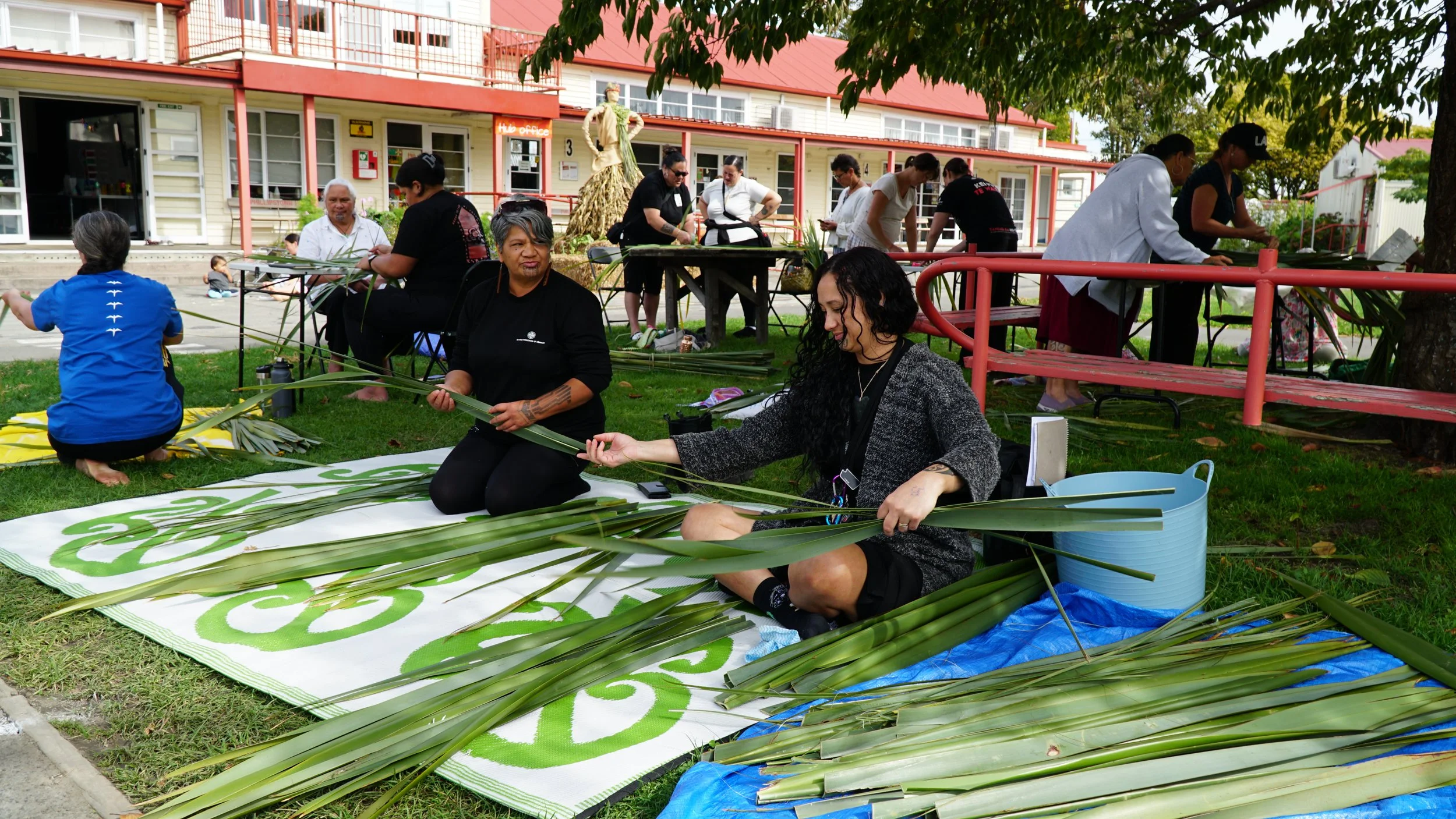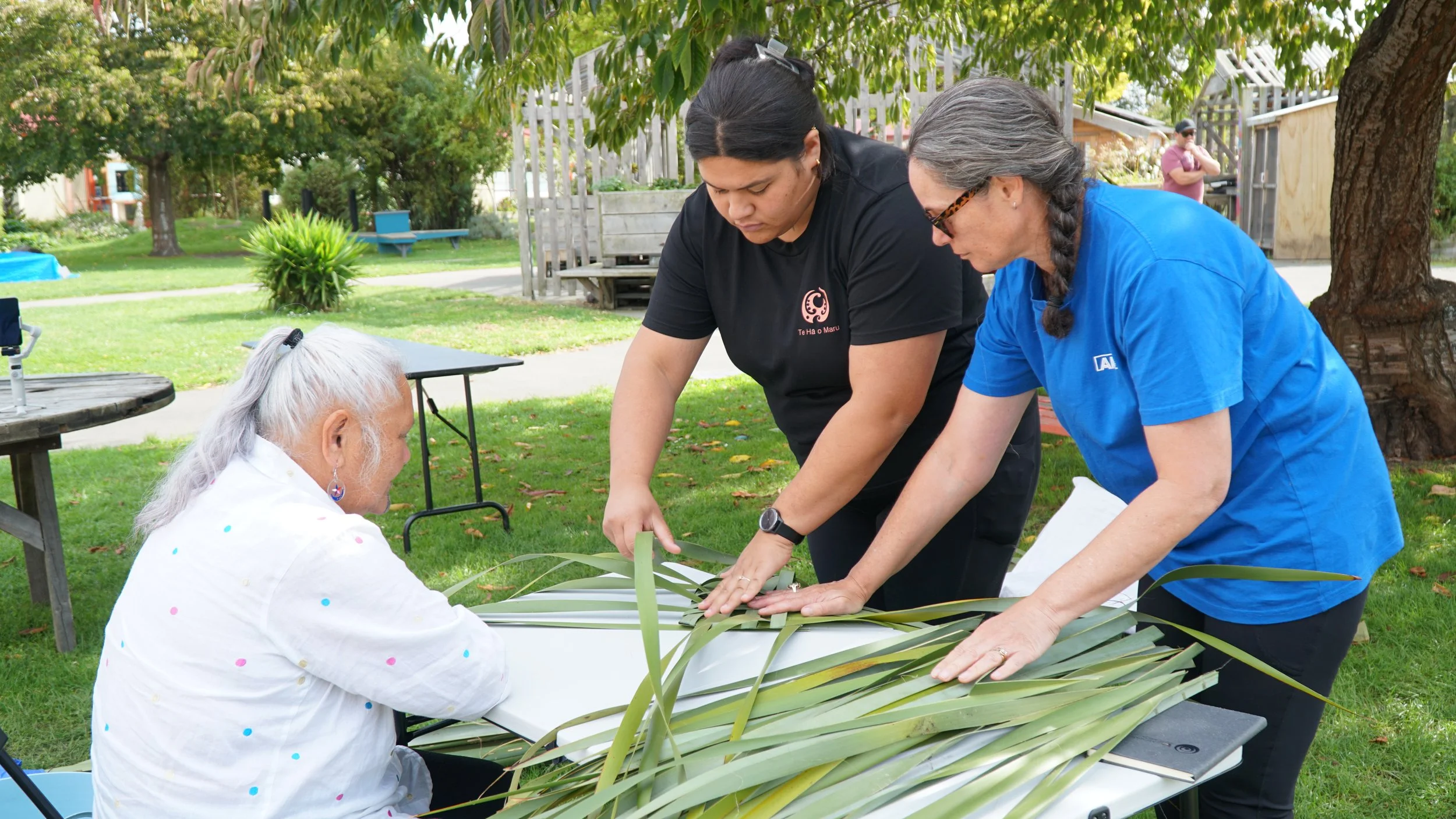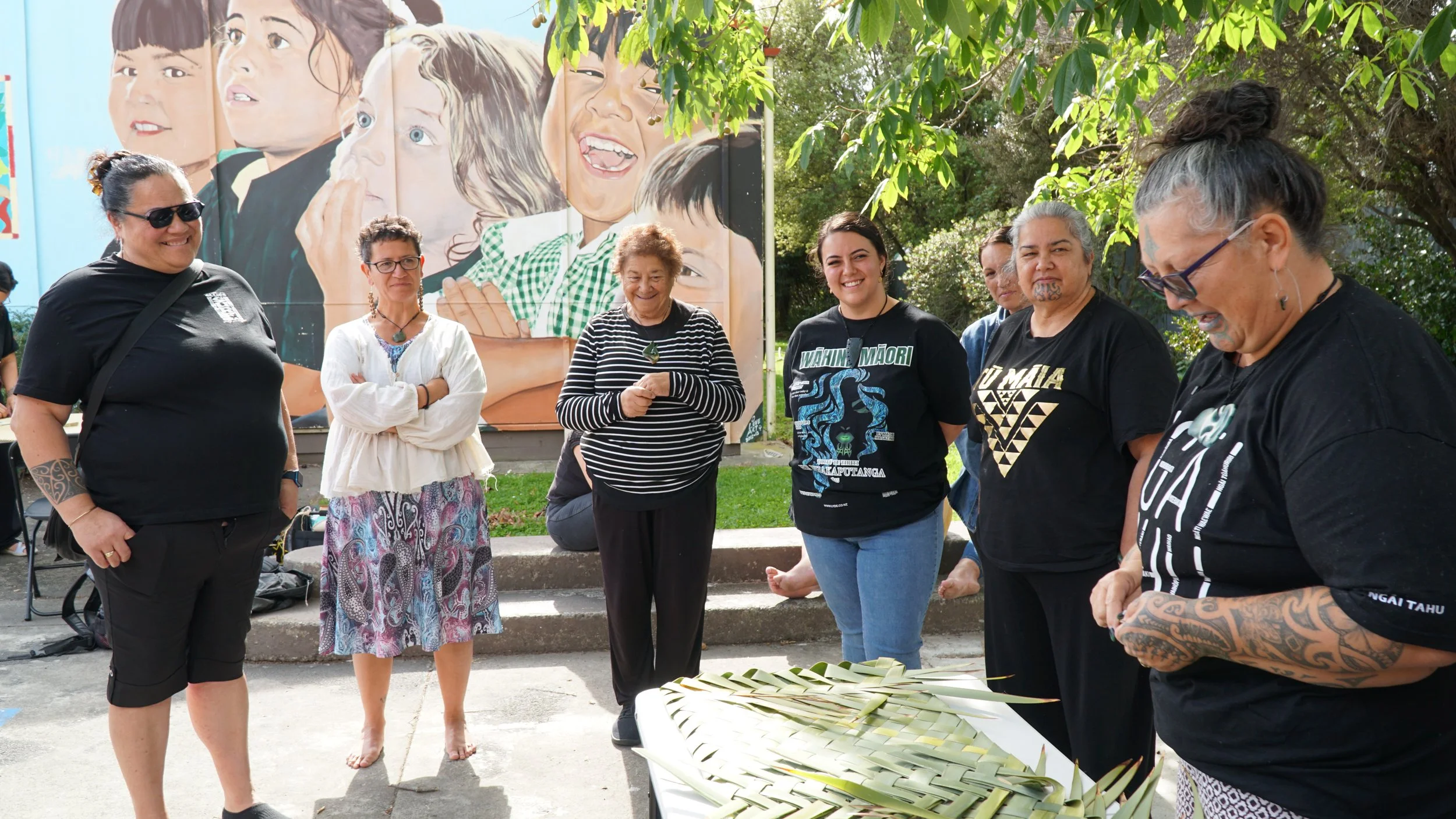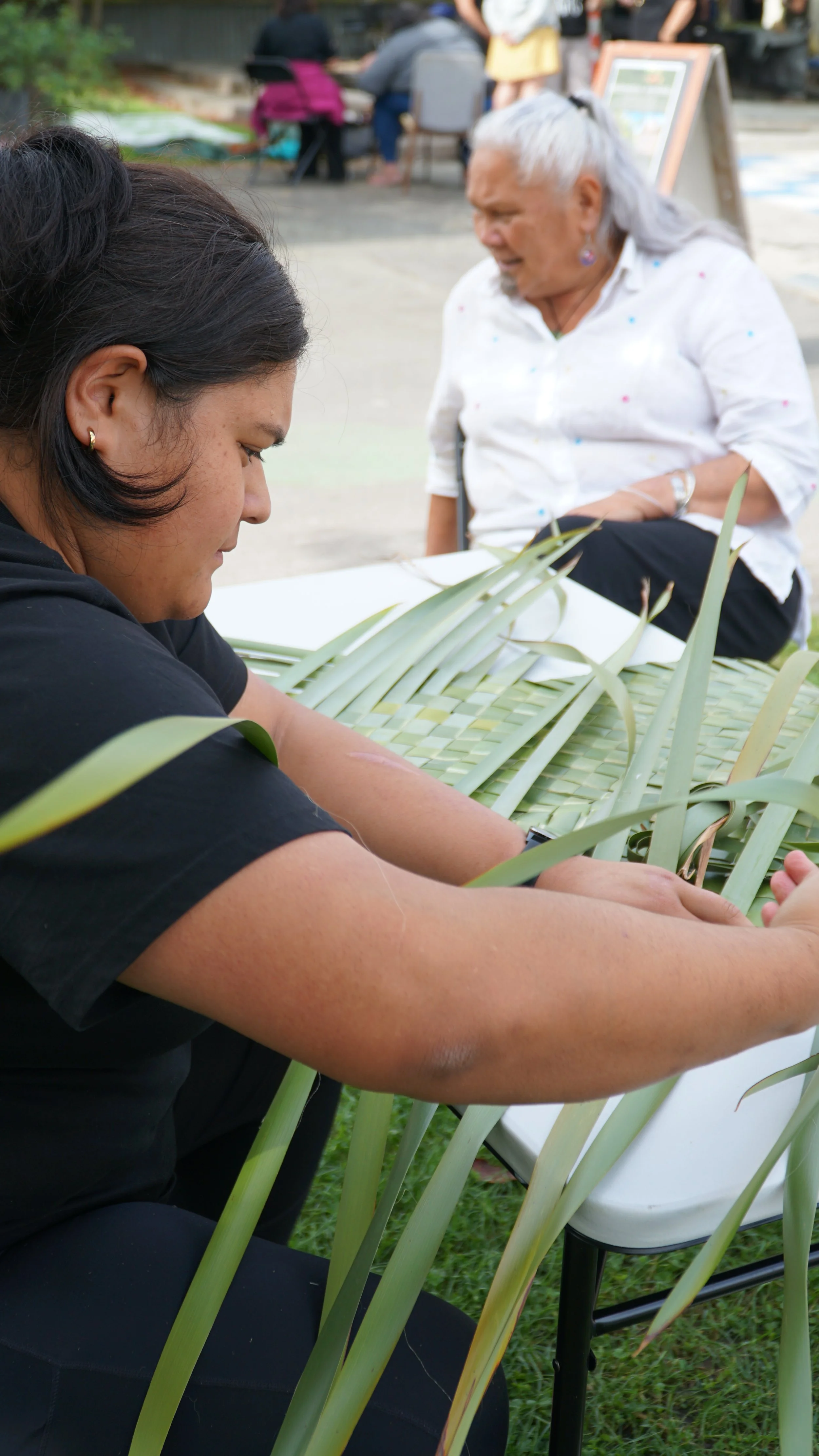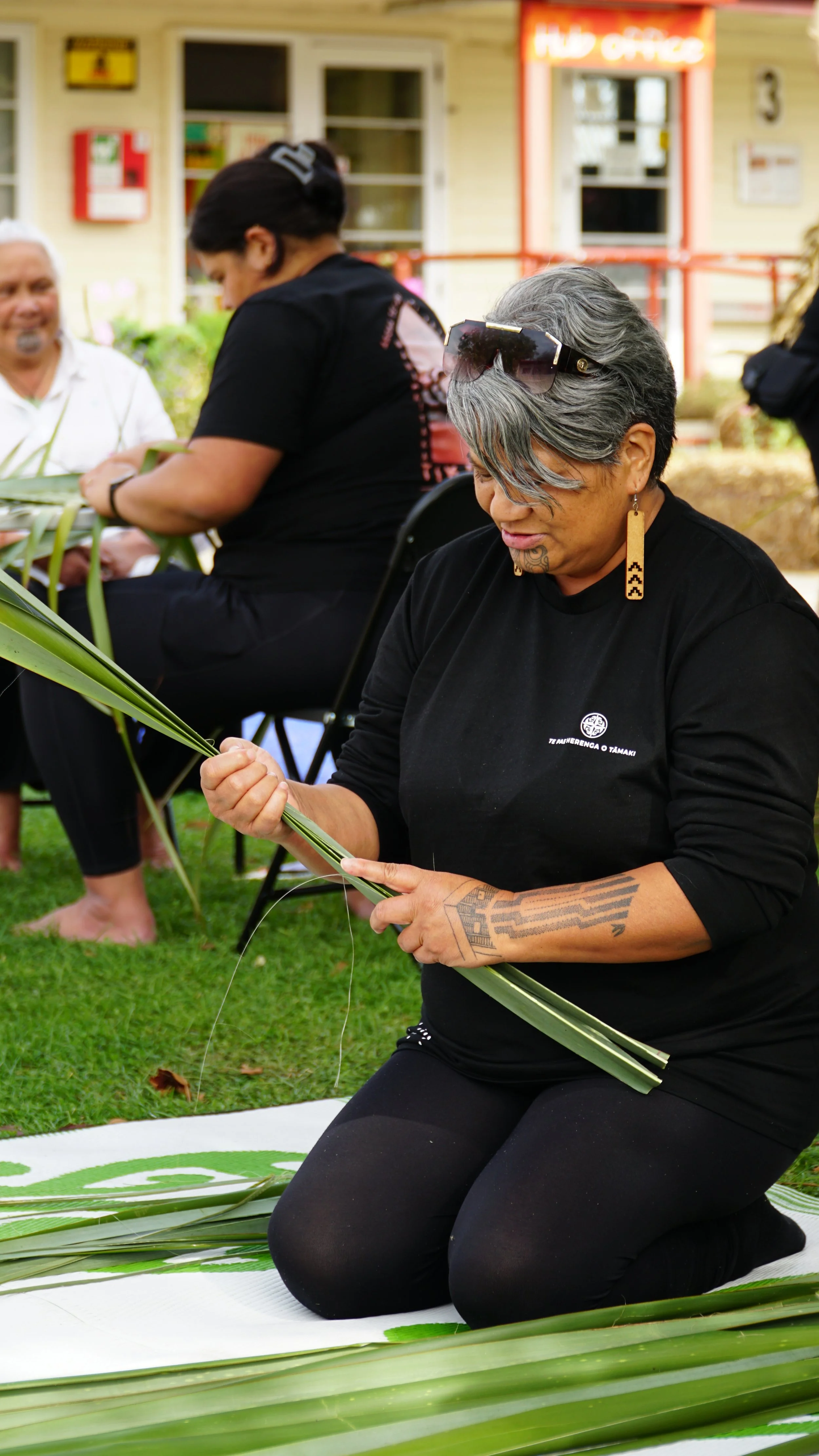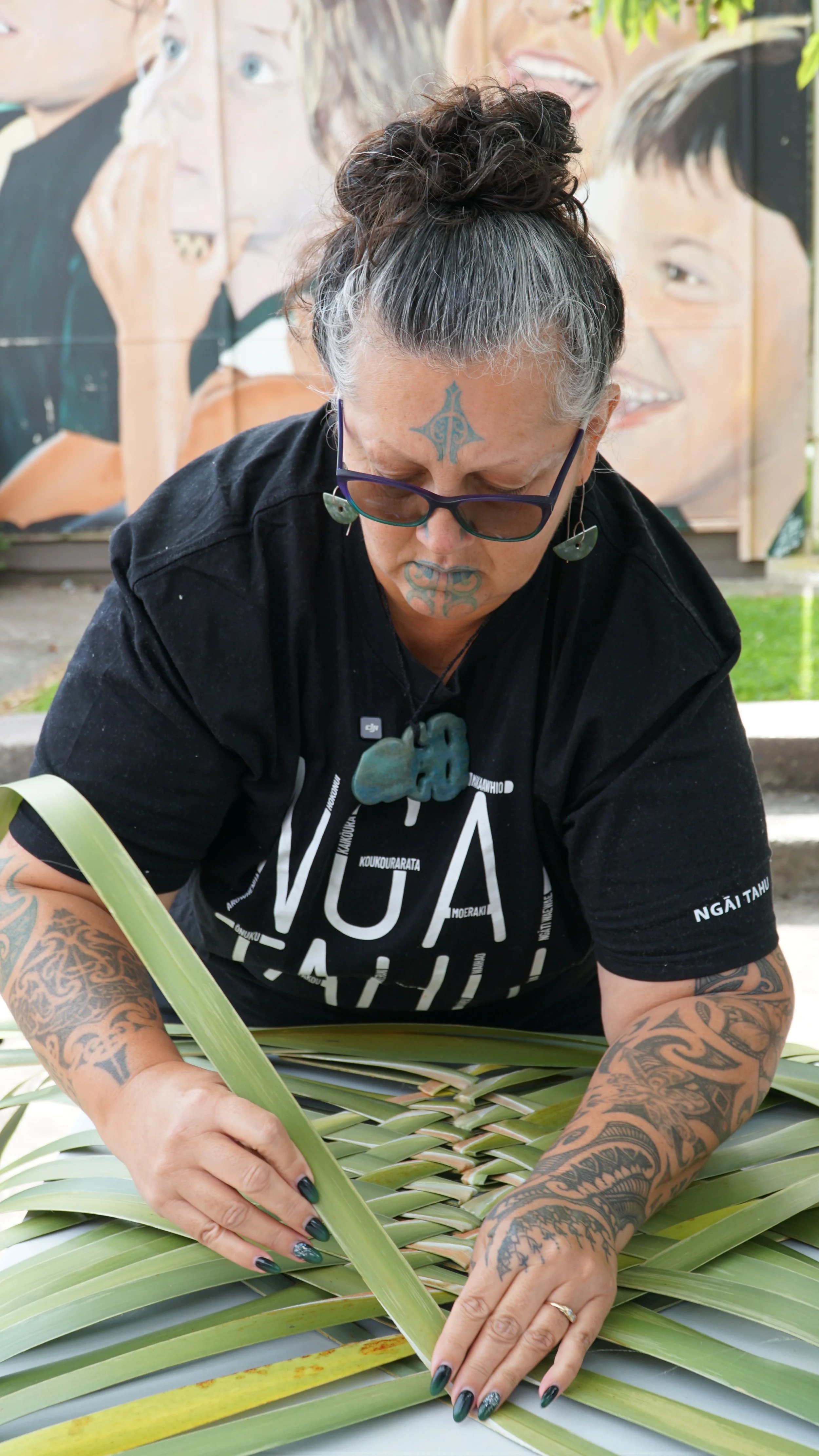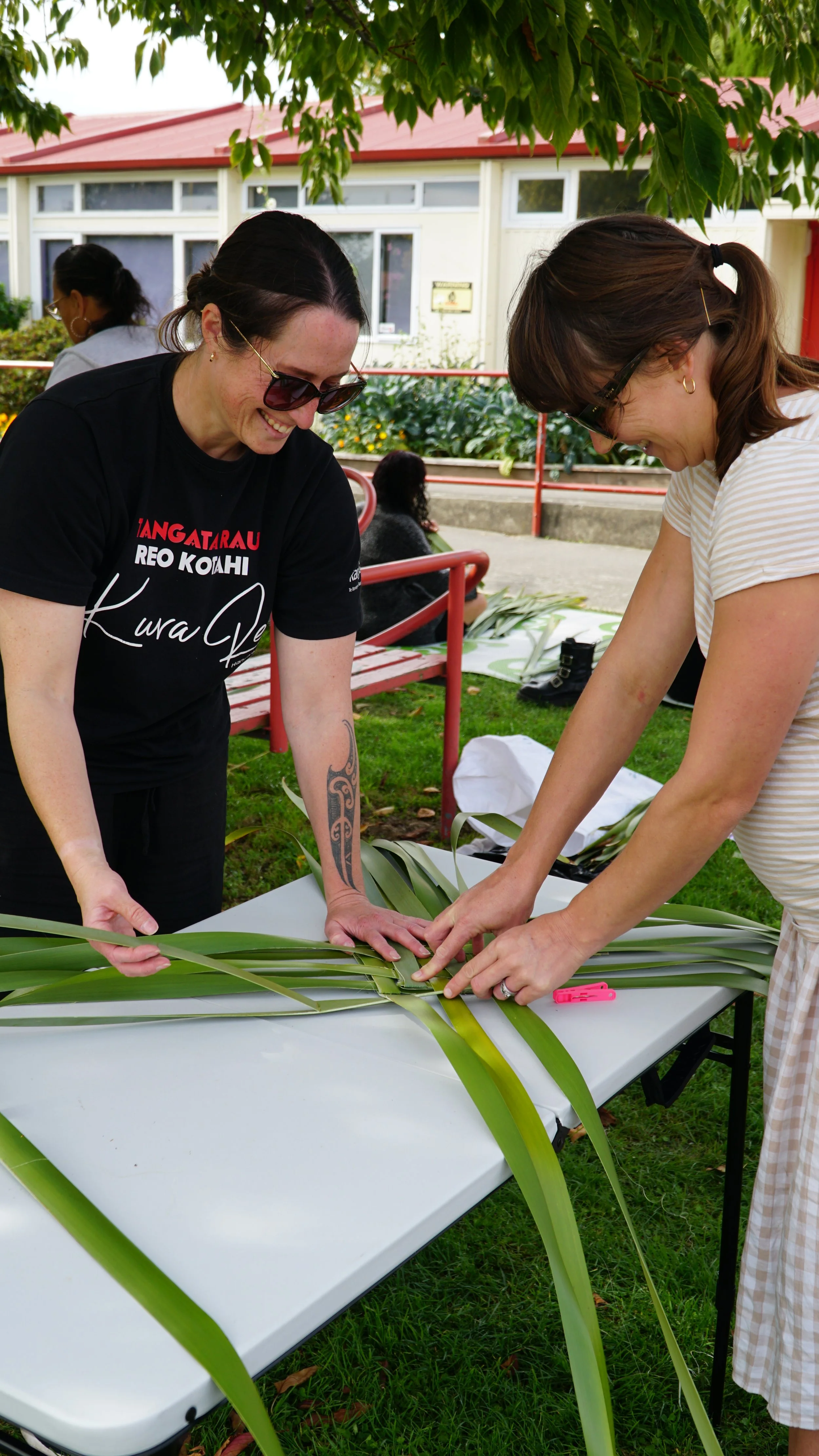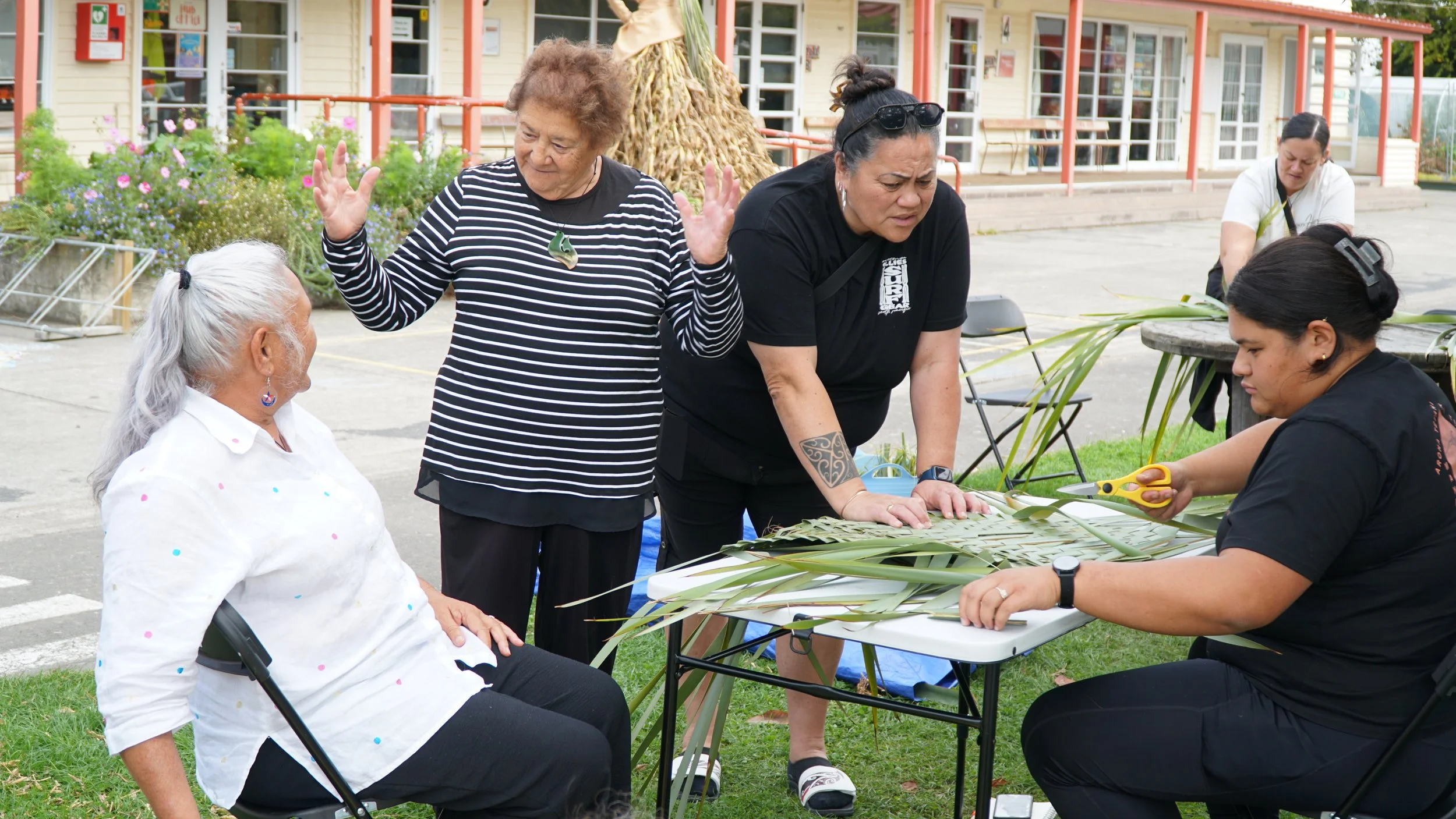Whariki wānaka
Whiria te tāngata
We had a big turnout for our wānaka whāriki in Ōtautahi with hapū māmā, tāua, weavers of all levels, and a mix of health professionals, all hungry to reclaim our traditional Māori birthing practices.
Whāriki or kaokao are woven mats made from harakeke and designed specifically for birth. Traditionally, whāriki were used to directly birth the pēpi onto and kept and used within whānau for generations. Some hapū rolled the whenua (afterbirth) with the whāriki and buried both together. Other whāriki made from muka were soft and used more like elaborate blankets to wrap the newborn in.
Former chair of Te Rōpu Raranga Whatu o Aotearoa, Ranui Ngarimu, led the wānaka, which included discussions around ways to reintroduce whariki into our birthing practices.
“I’ve got some vague recollections of korero I’ve had with different people over the years, but not known or seen in action the practices themselves, so we’re trying to reinvigorate or reestablish it if we can.”
Ranui described the day as a journey, watching the weavers’ hands producing and creating something that could be carried forward. For the wāhine who attended, it was an encouraging reminder that this is something we can all participate in and provide taoka for our young mothers in the future.
Weavers, midwives and whānau discussing whariki in traditional birthing practices
“I’ve had some korero with midwives before when we were talking about making muka for tying the umbilical cord so out of that came a huge workshop and created some beautiful things,” said Ranui. “We all must come together to collaborate because weavers can’t create without the knowledge midwives have about birthing. Even though I’m supposedly leading this workshop, I’m very much learning.”
Weaver Missy Campbell (Poutini Kāi Tahu, Ngāruahine, Scottish) says she came to tautoko the kaupapa and share the waikawa style, for a quick and easy single-use whariki.
"For me, it’s very new. I’ve had six babies, and if I’d known all this korero that’s out there now, I know I would have birthed all my babies differently. My tamariki are still having babies, my hapū is still growing, so hopefully this might be something my next mokopuna might be birthed on to. I’d like to see traditional Maori birthing practices normalised."
Weaver Missy Campbell demonstrating waikawa style weaving
During the wānaka, discussions were had about what to call whariki specifically for birthing practices.
“We’ve sort of landed on a whariki takare ao: a whariki bringing something into the light, or into the new world,” said Ranui. “We must ensure that the name does not already exist for another taonga.”
This wānaka is the first of what we hope will be many, as we continue to build on what has been learned.

